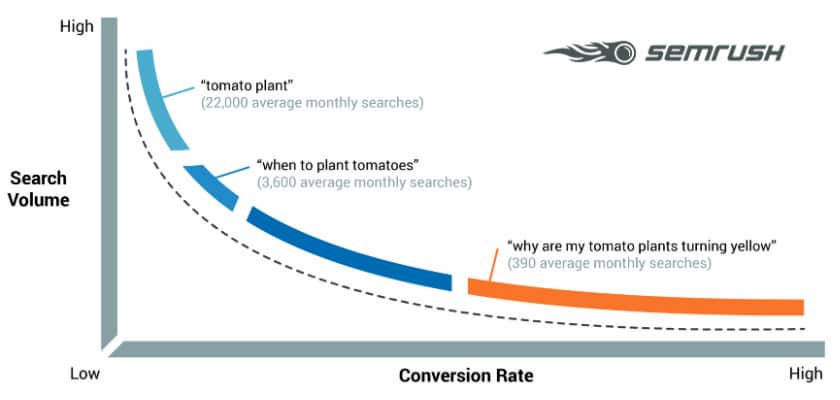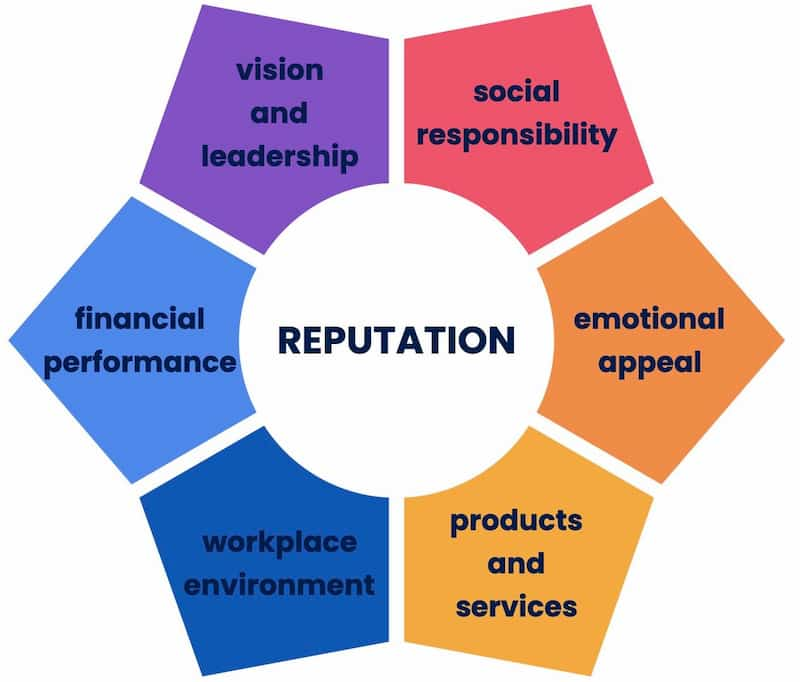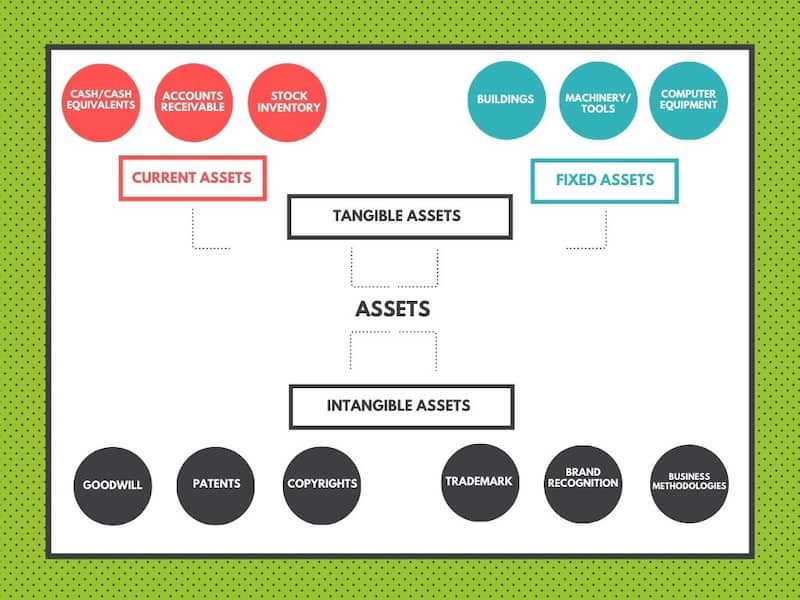What Is Corporate Reputation?
- Corporate reputation is arguably a company’s most valuable intangible asset.
- Underestimating the importance of corporate reputation can be fatal to your business.
- A positive corporate reputation is extremely difficult for competitors to replicate or overcome and can greatly impact a company’s bottom line.
- One of the keys to building and maintaining a good corporate reputation is keeping your stakeholders top-of-mind.
- Search engine results can shape corporate reputation, the content on your site, reviews, news coverage, and public actions taken by your company and its leaders.
- Corporate reputation is something that has to be monitored and fostered as part of reputation management.
What is corporate reputation?
Most successful corporate leaders don’t achieve their level of accomplishment by listening to everything that everyone tells them or says about them. Sometimes it’s the act of going against the tide and taking risks that turns out to be the best move. But once you’re at the top of the heap and overseeing a business, it becomes increasingly important to have your ear to the ground and be keenly aware of your corporate reputation – your stakeholders’ perception of your company.
Before you can repair a broken reputation or leverage a good one, you must fully understand what a corporate reputation is and how it is formed. The chart below breaks down the different influences on a company’s reputation.
In an article written for FreshBusinessThinking.com, Andrew Lester explains, “A company’s corporate reputation is the sum of all the views and beliefs held about the company based on its history and future prospects, in comparison to close competitors.”
So whose views and beliefs matter most when it comes to corporate reputation?
The answer is your company’s stakeholders. Brand stakeholders are simply any individual or group interested in your company’s outcomes. These include:
- Customers
- Employees
- Shareholders
- Competitors
- Influencers
While each of them will view your company differently because they each have unique interests, collectively, their sentiments define your corporate reputation.
What else drives corporate reputation?
- Company values
- Quality of products or services offered
- Employee sentiment and workplace environment
- Business methods
- Customer service
- Market value
When defining corporate reputation, it is essential to remember that it is an intangible asset. In the corporate world, an asset is anything of value to a company.
Tangible assets can be broken down into either current assets or fixed assets. Tangible assets such as cash, real estate, land, equipment, and inventory are more commonly discussed and easier to track, as you can typically assign a monetary value to them.
Much like these quantifiable assets, a corporate reputation has significant value to a company. Unlike tangible assets, however, the value of corporate reputation is not correlated to something physical and can be more difficult to determine precisely.
Here’s a simple graphic that shows the difference between tangible assets and intangible assets:
Goodwill, brand recognition, brand search results, reviews and ratings and business methodologies are examples of intangible assets that directly contribute to a corporation’s reputation. Your reputation is a powerful asset that can be greater than the sum of its parts.
But because corporate reputation is an intangible asset, business owners can easily overlook and neglect it. Some owners might not even see the signs that they need reputation protection or repair, causing losses to their reputation and revenues that could have been avoided. When they finally take stock of their reputation, a large amount of damage may be done, and they may need to implement massive repair efforts.
Underestimating the importance of your company’s reputation can prove to be a fatal error. This is why developing a corporate reputation strategy is critical.
Why is corporate reputation important?
Although corporate reputation can be difficult to quantify, it is essential that a company monitors it closely because a good reputation can have a tremendous upside for business.
In addition to creating goodwill and a positive feeling with clients, customers, and your employees, a positive corporate reputation is difficult for competitors to match or overcome.
“Good corporate reputations are critical not only because of their potential for value creation but also because their intangible character makes replication by competing firms considerably more difficult,” according to an academic paper in the International Journal of Business and Social Science.
When your brand, product, employees, and customers come together and succeed, it’s a unique formula that works. Another company can’t just come in and try to replicate it because it doesn’t have all the components or the same path to put them together in the way you have. There isn’t anyone else out there like you. Your company is one in a million, making it even more vital that you protect your reputation.
An organization’s sales can rise and fall with the ebb and flow of its corporate reputation. This is where marketing to shape a brand’s reputation comes into play.
When someone performs a Google search for your company’s products or services, are you showing up high enough in the search results? What do online reviews of your product/business look like? What do the images and content about your company that appear in search results say about your brand?
These are all important questions to ask when defining your corporate reputation.
How do you build a corporate reputation?
Understanding and acknowledging the fickle nature of corporate reputation is the first step toward building and managing it. Bolstering and maintaining corporate reputation is an ongoing process for CEOs and other leaders of organizations, but first and foremost, it all starts with keeping stakeholders in mind.
Being able to communicate better with stakeholders and ensuring that their needs and concerns are addressed is the backbone of corporate reputation management. Communication with stakeholders is supplemented with how stakeholders perceive your brand. This perception is affected by several factors.
Search Engine Results
Different stakeholders will search for different things, but it’s important to put yourself in their shoes and think like an investor, customer or employee.
Most of the time, when stakeholders perform Google searches, they use what are called “longtail keywords.” These are search phrases that have three or more words. Search engine optimization (SEO) research shows that these longtail keyword searches have higher conversion rates than shorter search terms.
So when strategizing SEO for your company, ranking for longtail keywords is crucial when establishing your organization’s credibility on the web. After all, if it’s not on the first results page for Google, it might as well not exist.

News Coverage
When stakeholders do successfully find your brand through search engines, what content will they see?
Has your organization been receiving negative or positive press? It’s sad but true; even corporations with the best reputations sometimes have to dig for positive press, whereas negative press is always abundantly front and center. Also, consider that reviews are an increasingly important type of positive or negative press.
That makes monitoring and managing the news coverage your company receives is much more important. Negative press can snowball and has to be dealt with proactively. If not, it can become a larger issue or even a situation requiring crisis management. The positive press has to be leveraged and capitalized on while relevant.
If your organization has been involved in goodwill or charity efforts, or one of its products/services has been recognized or awarded, ensure content is abundant (i.e. blogs, social posts, press releases, etc.). Get brand evangelists talking about your news and provide them with the tools to promote the information. Leading an organization and building a positive corporate reputation is constantly finding ways to make the positive press outweigh the bad.
Also, remember to interact with reviews. When people leave good comments on review sites, respond to them with thanks. If there are negative reviews or stakeholders have issues with your company or their experiences, make sure to work with them to resolve their complaints. If you can make them happy, you might even be able to have them remove or alter their review now that their concerns have been addressed.
Public Actions
Actions speak louder than words. Your company’s marketing can be as positive as possible, but if the activities of your organization don’t fall into line and fulfill the promises of the marketing and branding, it can create distrust between stakeholders and your corporation.
Distrust and good reputations don’t mix.
How does your company handle a crisis? Do employees speak highly of your organization on and off the record? What does the CEO’s personal life look like in the public eye? Are you in line with the social beliefs of the public?
All of this and more can sway public perception and affect your corporate reputation. It’s important to keep in mind that those with the best reputations didn’t get there by being inauthentic; they made decisions with stakeholders’ interests in mind and showed that they could be trusted as an organization through continuous positive action. It also didn’t happen overnight or by not paying attention to their reputation. It’s like growing a flower; it takes time, effort, and attention.
Conclusion
Just because you can’t touch, see or count it doesn’t mean corporate reputation isn’t one of the most important assets to any organization. It is arguably a company’s most valuable intangible asset and is subject to risks.
As a collective view of stakeholder interest and sentiment, corporate reputation is a pillar of success for any business and a trait that can separate a company from its competitors.
It is paramount that company leaders identify and monitor their corporate reputation regularly. If corporate reputation building, management, or repair is needed, professionals who specialize in reputation management can help.
FAQs
What is corporate reputation?
Corporate reputation is the sum of all the views and beliefs held about a company based on its history, interactions, and future prospects compared to close competitors. The opinions and beliefs that matter most are that of a company’s stakeholders, such as employees, customers, and investors.
Why is corporate reputation important?
An organization’s sales can rise and fall with the ebb and flow of its corporate reputation. A positive corporate reputation is very difficult for competitors to match or overcome.
How do you build corporate reputation?
Understanding and acknowledging its fickle nature is the first step toward building or managing your corporate reputation. Bolstering and maintaining corporate reputation is an ongoing process for CEOs and other company leaders, but it all starts with keeping one word in mind: stakeholders. Being able to communicate better with stakeholders and ensuring you address their needs and concerns is the backbone of corporate reputation management. That is supplemented with how your brand is perceived by stakeholders, which is affected by several factors such as SEO, news coverage, reviews, and public actions.
About the author
Kent Campbell is the chief strategist for Reputation X, an award-winning reputation management agency based in California. Kent has over 15 years of experience with SEO reputation management, Wikipedia editing, review management, and strategy. Kent has helped celebrities, leaders, executives, and marketing professionals improve their online appearance. Kent writes about reputation, SEO, Wikipedia, and PR-related topics and is an expert witness for reputation-related legal matters. You can find Kent’s biography here.
–
Tags: Business Reputation Repair, Corporate Reputation, Online Reputation Management Services.


